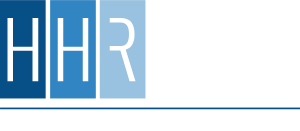Pennsylvania is an at-will employment state. Simply put, an employer can terminate a person's employment at any time for almost any reason. However, some justifications for firing workers are illegal. For example, an employer can't fire a worker for having a work-related injury. An employer can, however, fire an injured worker for other reasons that aren't banned by the law.
Other illegal reasons to fire workers include:
- Reporting a safety violation at work
- Filing a workers’ comp claim
- Being of a particular ethnicity, gender, race, or national origin
- Having a disability that requires accommodation
Sometimes, employers hide behind Pennsylvania's at-will employment laws to retaliate against workers. In other words, they'll fabricate legal reasons to fire someone when they're firing them in retaliation for a work-related injury or workers' compensation claim. When this happens, a worker must contact an attorney for assistance with holding their employer accountable for breaking the law.
A worker who has been retaliated against may seek to recoup any losses they experienced as a result of their employer's conduct. This may include job reinstatement and financial compensation, depending on the situation.
Examples of Employer Retaliation
Various employers nationwide have been guilty of retaliating against employees who were simply trying to improve their working conditions, protect themselves and their co-workers, or recover benefits for on-the-job injuries. Employer retaliation may include any act or attempt to reduce a worker's pay or position, fire a worker, or expose them to a hostile workplace as a response to their carrying out a protected act, like reporting a safety violation or work injury.
The following are examples of employer retaliation:
- Firing a worker (wrongful termination)
- Demoting a worker
- Decreasing a worker's pay
- Denying a worker benefits, bonuses, or other compensation
- Decreased hours
- Making work harder for other employees
- False claims of negative job performance
- Mistreatment by managers
- Unfavorable shifts
- Increased occurrences of "undesirable" work duties compared to other workers
Any worker in any position or industry can face retaliation. When they do, they have the right to take legal action against their employers or other at-fault parties
Protected Acts & Your Rights as a Worker
Workers in Pennsylvania have certain rights and can take specific actions without fear of retaliation by their employers. These are considered protected acts and may vary depending on the circumstances.
Workers have the right to do the following without fear of employer retaliation:
- File a workers' compensation claim
- Report a work-related injury
- Support another employee's workers' compensation claim
- Report discrimination, harassment, or other workplace violations
- Report safety violations at work
- Request medical leave for an injury or illness
If you were fired or demoted after engaging in any of these protected acts, you should talk to an attorney as soon as possible. You should not have to suffer for exercising your right to a safe workplace or treatment and benefits for a work injury.
Can You Get Fired for Filing a Workers' Comp Claim in PA?
When a worker files a workers' compensation claim, it’s typically because they need time off to heal from an injury. On top of taking time off, filing a claim usually increases an employer's insurance costs, so it isn't unreasonable for a person to fear losing their job or facing retribution for making a claim.
Thankfully, Pennsylvania law prohibits employers from firing employees because they filed a workers' compensation claim or were injured while working. The law also bans employers from retaliating against workers who make a workers' compensation claim. Likewise, employees can't be punished for winning a claim, receiving their benefits from a claim, or supporting the claim of another worker.
What Happens If I’m Fired Anyway After Filing a Workers’ Comp Claim?
If a person files a workers' compensation claim and they're fired shortly after, Commonwealth law considers them still eligible for benefits. If your former employer is delaying your claim, contact a Pennsylvania workers' compensation lawyer from HHR as soon as possible for assistance.
100 Years of Pennsylvania Workers' Compensation Experience
Handler, Henning & Rosenberg LLC has represented the injured for the past century. Our Pennsylvania workers' compensation attorneys know what it takes to hold employers and insurance companies accountable when they fail to respect injured workers' rights. Our team includes J. Jeffrey Watson, who is certified as a specialist in the practice of workers' compensation law by the Pennsylvania Bar Association's Workers' Compensation Law Section as authorized by the Pennsylvania Supreme Court since 2018. He is uniquely qualified to handle cases of this nature and works with the rest of our attorneys and support staff to seek the best possible result for every client.
To learn more about our firm and how we can help you, call (888) 498-3023.


